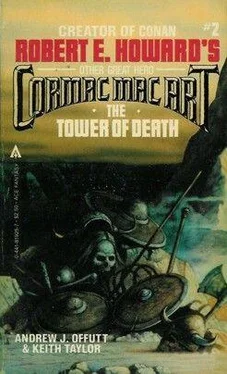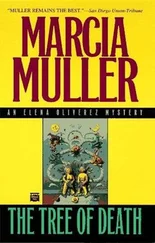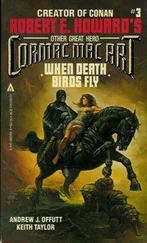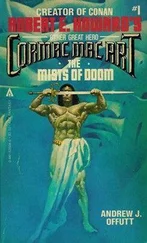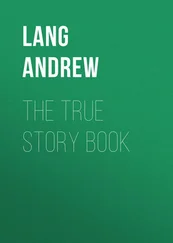Andrew Offutt - The Tower of Death
Здесь есть возможность читать онлайн «Andrew Offutt - The Tower of Death» весь текст электронной книги совершенно бесплатно (целиком полную версию без сокращений). В некоторых случаях можно слушать аудио, скачать через торрент в формате fb2 и присутствует краткое содержание. Жанр: Фэнтези, на английском языке. Описание произведения, (предисловие) а так же отзывы посетителей доступны на портале библиотеки ЛибКат.
- Название:The Tower of Death
- Автор:
- Жанр:
- Год:неизвестен
- ISBN:нет данных
- Рейтинг книги:3 / 5. Голосов: 1
-
Избранное:Добавить в избранное
- Отзывы:
-
Ваша оценка:
- 60
- 1
- 2
- 3
- 4
- 5
The Tower of Death: краткое содержание, описание и аннотация
Предлагаем к чтению аннотацию, описание, краткое содержание или предисловие (зависит от того, что написал сам автор книги «The Tower of Death»). Если вы не нашли необходимую информацию о книге — напишите в комментариях, мы постараемся отыскать её.
The Tower of Death — читать онлайн бесплатно полную книгу (весь текст) целиком
Ниже представлен текст книги, разбитый по страницам. Система сохранения места последней прочитанной страницы, позволяет с удобством читать онлайн бесплатно книгу «The Tower of Death», без необходимости каждый раз заново искать на чём Вы остановились. Поставьте закладку, и сможете в любой момент перейти на страницу, на которой закончили чтение.
Интервал:
Закладка:
No skald was Wulfhere Skull-splitter. Like all seafaring men all over the world, he was certain that luring sea-women waited to drown good men in their white arms. And what had he seen? A barge made all of bones and women aboard-and there was no doubt of their enmity and destructive purpose. And… would not the very seaweed obey the daughters of Aegir and Ran?
“I saw them, Wolf!” the Dane insisted. “Eerie, blank-eyed bitches with long hair all pale with brine, and cold choking kisses on their lips for any man they can clasp in their arms, I warrant me! The very daughters of Ran, Cormac!”
And again Cormac mac Art turned away to let his brain wrestle with the ambiguous and the impossible… and seeming impossibilities.
The Daughters of Ran.
Very well. Gods existed of a surety, and their get; a fool and inexperienced was he who averred they did not. Sorcery existed too, as it had since the dim beginnings of humankind; ere Atlantis rose up from the greedy seas, much less sank again long later. Of a sudden mac Art knew that sorcery had existed in Commoria and Valusia and Aquilonia and Brythunia and in dark, jungle-shadowed Stygia, though in truth he was not sure how he knew so certainly. (What places were those?)
He stumbled, frowning. The very air, had seemed to shimmer. No; a glance around showed him that all was normal in sunny Galicia.
Normal! Oh aye, normal… the Daughters of Ran-or the Sirens the Greeks spoke of still-had on their Cleopatran barge an unfueled fire that burned without consuming the craft. Cormac drew in his lips. He sighed. Very well. That seemed plainly impossible. And that meant it was totally inexplicable… by ordinary means.
There was no explanation for motile, seemingly sentient seaweed, or for the fire on that phantom craft.
No natural explanation.
Wandering, thinking, mulling, Cormac hardly took note of a happily chatting couple already causing talk: King Veremund, and Clodia of Nantes. Cormac would report to the king, sometime today; at present he needed to sort out his own thoughts a bit more. For another reason altogether, Veremund hardly seemed ready to discuss last night’s events, either.
Without being fully aware of it, Cormac wandered back to the coast. There he stood gazing upon the endlessly lapping, glassy plain of the sea that was now emerald and now sapphire or lapis lazuli and now pure onyx crowned with ivory and behaving as if demonridden. The sea. Many men plied the sea, and some professed to love it. The sea loved no one. Nor, save now and again, did it seem to hate.
Standing over it, to Cormac’s left reared that white pile, of stone; the accursed tower the Romans had raised for the aid of ships at sea. It was sentry to the land, a brooding watchman over the water.
The sea. It had rolled on and on, Cormac mused, for untold ages, lapping timeless shores that changed only in name and in the peoples that claimed them. Surely the sea had been here forever…
No. Treachery Bay or the Cantanabrian Sea, he suddenly saw, would not be so in future, though his brain held no meaning for the strange word Biscay . And in past…
Again Cormac’s world seemed to shimmer, to stumble.
The sea rolled out green. And grew greener, greener… And then it was gone even as he stared upon it.
Here sprawled rolling plains, and even as he stared, seeing not and yet seeing, he saw how the sun shimmered on burnished mail and silvered cuirasses and gilt-worked helmets. And mac Art was elsewhen; his remembering was upon him.
Horses pranced over grassland and their tails streamed out like fine cloaks. Their proud riders bore lances and swords that had oft dripped with red. Their feet were thrust into leathern boots whose variations of colour he knew derived from having waded rivers of blood like scarlet tides. For so was history made, and he knew then that he was watching history, on the land that had lain there ere the bay swallowed it.
In a neighing shouting jingling leather-creaking squalling chaos that nevertheless bespoke the pride and organization of civilization, steel-clad ranks of gleaming mounted men galloped across that which in the long ago had been well-grassed earth, not sea. And he was looking upon the long, long ago. Guidons and bannerets fluttered like bright butterflies above those mailed men of old.
Before Cormac’s eyes and yet behind them, history rolled back. The intervening centuries were swept away as the fog before the warm sun of morning; as had been whole cities and civilizations swept away in the relentlessness of uncaring time.
And he knew whereon he looked. Names came into his mind, strange names in no language now known, hoary with age and yet all glitteringly exotic.
Asgalun and Amalric and Arenjun, and Shadizar the Wicked had existed, far over there to the east, and Numelia of Nemedia, a place whose name toyed with the tongue. Koth, and Vilayet-what names were these? The bright Road of Kings had wound anciently across this time-forgot land like a sleepy serpent testing the sun of these dreaming kingdoms south of the Hyborian demesnes. Plains rolled verdantly out to a placid river whose name he knew-somehow-was Tybor. Along its bank rose a city whose walls were etched by the sun in fading gold. This was bastioned Shamar, and Cormac knew, just as he knew that once he’d been there, once he’d thefted there, and fought with sharp blade.
Aye, and once too he’d abode in the proud kingdom that sprawled fertile and beautiful just northwest of Shamar.
Aquilonia.
Aye, Aquilonia, by Mitra! I know you well, Aquilonia, lost in the grey clouds of time and space.
Aquilonia, far from sunburned old Turan… and I… I came down from Cimmeria and was king in Aquilonia, once! Tarantis… be that a name? Aye: Tarantia. My name. No-my woman’s? Perhaps one named Tarantia was queen to me, when I wore crown in Aquilonia so far from my native… not Eirrin for it did not exist… my native Cimmeria… But what is my name?
Amra? But no; amra was a Gaelic word, and how could a man be called by that word: “eulogy?”
The thoughts were swept away. Before mac Art the bodeful mists rolled, eddying, coiling, and history rushed along. The northern barbarians came down onto these plains, and met others, dark men, and the struggle raged… and then all was swept away like smoke before the winds of time.
Aquilonia vanished, with the plains of Poitain and the Tybor; drowned in a convulsion of the earth, and that cataclysm sent green-blue waves rolling into swallow all those realms into that of Manannan macLir.
And history swept on, in a rush, where Aquilonia had basked had also stood a city of horror, a city haunted by a horrid ichthyosaurian shadow that was also somehow human… or almost… and now where Aquilonia had lain there rolled the Bay of Treachery, and the dark dense forests of Galicia blotted the sunlit green of the plains of ancient Poitain.
“Mac Art.”
Cormac blinked and twitched his head. What-? What had happened? Was this a vision? Aquilonia and Poitain? What were those? Blood of the gods! It’s the… the Remembering! It’s come on me again!
“Mac Art?”
Aye, that was his name. Not-not whoever he’d been, in those ages tens of centuries agone, when the race of humankind had risen up only to fall… again. Once more Cormac mac Art jerked his head. He stared at the sparkling sea, he who had known from the time of his first Remembering at fourteen that once he’d been that fabled hero of Eirrin, Cuchulain of Muirthemne. And how many others? For he knew that Rome was not ancient. Rome was a child. Cormac mac Art was ancient; this life-force that had returned to tread this earth again and-
“Mac Art!”
Читать дальшеИнтервал:
Закладка:
Похожие книги на «The Tower of Death»
Представляем Вашему вниманию похожие книги на «The Tower of Death» списком для выбора. Мы отобрали схожую по названию и смыслу литературу в надежде предоставить читателям больше вариантов отыскать новые, интересные, ещё непрочитанные произведения.
Обсуждение, отзывы о книге «The Tower of Death» и просто собственные мнения читателей. Оставьте ваши комментарии, напишите, что Вы думаете о произведении, его смысле или главных героях. Укажите что конкретно понравилось, а что нет, и почему Вы так считаете.
